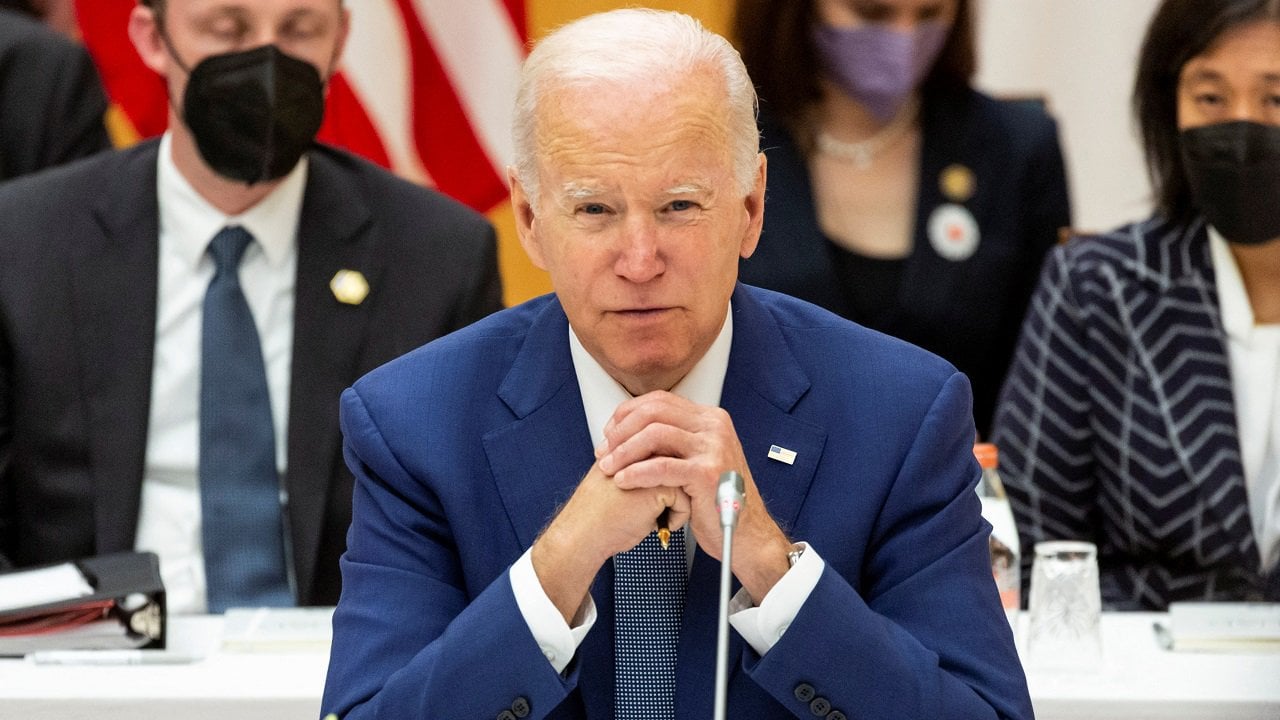Biden’s Latest Defense Pledge to Taiwan: Gaffe or the Real U.S. Policy? President Joe Biden has once again roiled the geopolitical waters of East Asia with his latest statement on U.S. policy toward Taiwan. At a May 23, 2022, news conference during his visit to Japan, Biden strongly indicated that he would go further on behalf of Taiwan’s defense than he has been willing to do with respect to Ukraine. It is a significant distinction and an escalation of the U.S. commitment to Taipei. Biden has steadfastly refused to deploy U.S. forces in Ukraine, although Washington has provided tens of billions of dollars in weapons as well as intelligence assistance to help Kyiv defeat Russian forces. When a reporter asked: “Are you willing to get involved militarily to defend Taiwan if it comes to that?” Biden answered flatly: “Yes.” There appeared to be no waffling either. “You are?” the reporter followed up, making it clear that he was talking about direct U.S. military intervention. “That’s the commitment we made,” Biden replied.
Biden’s last statement was factually inaccurate. U.S. policy regarding Taiwan is governed by the Taiwan Relations Act of 1979, which was enacted when Washington shifted official diplomatic relations to the People’s Republic of China (PRC). Under the TRA, the United States pledges only to sell Taiwan weapons of defensive nature and regard any PRC attack on the island as a severe breach of the peace in East Asia. If the latter occurs, the president and Congress are obligated to consult about an appropriate response. There is no official commitment for Washington to defend Taiwan, however, despite Biden’s implication to the contrary. Indeed, U.S. administrations over more than 4 decades have pursued a policy of “strategic ambiguity”—playing coy about what Washington’s response would be if the PRC resorted to military force.
It is tempting to dismiss Biden’s comment as simply the latest clumsy incident by a notoriously gaffe-prone president of a notoriously gaffe-prone administration. There are mounting reasons, though, to conclude that a more severe situation is taking place with respect to Taiwan policy. Biden has made too many similar statements about Washington’s alleged defense commitment to the island to believe that all of his comments are merely verbal blunders.
During an August 2021 interview with ABC News, host George Stephanopoulos asked the president if Washington’s allies could still rely on U.S. protection in light of the disorderly withdrawal from Afghanistan. Biden responded: “We made a sacred commitment to Article Five that if in fact, anyone were to invade or take action against our NATO allies, we would respond.” He goes on: “The same alliance had been forged with Japan, South Korea, and Taiwan,” he stated [Emphasis added]. During an October 21, 2021, CNN town hall session, the president was asked explicitly whether the United States would defend Taiwan from a PRC attack. Biden responded unhesitatingly: “Yes, we have a commitment.”
In all previous episodes, administration officials, including Secretary of Defense Lloyd Austin, National Security Advisor Jake Sullivan, and White House Press Secretary Jen Psaki, scrambled to “clarify” (walk back) the president’s comments to assure the news media and international leaders (especially PRC leaders) that U.S. policy had not really changed and that the TRA still determined that policy. Both Austin and the White House staff tried to execute the same maneuver on this latest occasion.
However, there are strong reasons to conclude that the president’s repeated “gaffes” accurately reflect his actual policy regarding Taiwan. Under both Biden and his predecessor Donald Trump, Washington’s security relationship with Taipei has blossomed to the point that it has restored many of the features of the full-fledged bilateral security alliance that existed before 1979.
It’s also important to understand that if a crisis erupts in the Taiwan Strait, the fateful decision about the U.S. response will not be made by Lloyd Austin, Jake Sullivan, the White House press secretary, or any other figure who might favor greater restraint. Joe Biden will make that decision. It shouldn’t be that way; no single official should have such power. Yet, despite language in the Constitution giving Congress, not the president, the authority to make decisions about going to war, it is unlikely that Biden would do more than “consult” Congress, if he deigned to do even that much. For more than seven decades, Congress has abdicated its responsibility for issues of war and peace and allowed an unrestrained, imperial presidency to flourish. It is highly improbable that the legislative branch would now attempt to rein in Biden in the midst of a Taiwan crisis.
The unpleasant reality is that the U.S. commitment to Taiwan’s defense has expanded dramatically in recent years, with little congressional debate and hardly more significant public discussion about the enormous potential costs and risks. Strategic ambiguity is dead. Biden is not guilty of making repeated verbal gaffes about U.S. policy toward Taiwan, although it is understandable why that impression persists. He is stating the truth about the substance of U.S. policy, however covertly the shift has taken place.
Ted Galen Carpenter, a senior fellow in defense and foreign policy studies at the Cato Institute and a contributing editor to 19FortyFive, is the author of 12 books on international affairs, including America’s Coming War with China: A Collision Course over Taiwan (Palgrave Macmillan, 2005).

